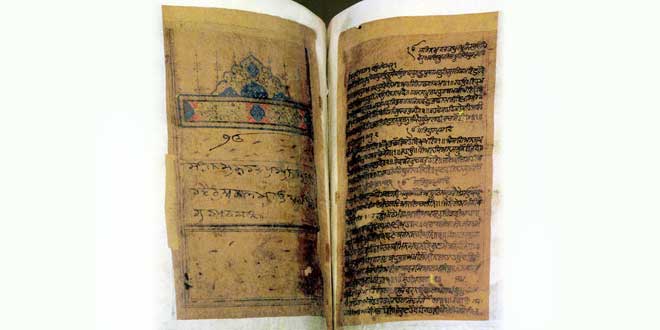BIR, a term used for a recension or copy of the Guru Granth Sahib, is derived from Skt. verb vid meaning "to make strong or firm, strengthen, fasten, or to be strong, firm or hard." The Punjabi verb birana which means "to fix, bind or fasten (something) firmly, or to lay (a gun)" is from the same root. Guru Arjan having compiled the Holy Book deputed one of his leading disciples, Bhai Banno, to go and get the volume bound in Lahore, perhaps because facilities for proper binding did not then exist at Amritsar.
Learn about Nand Chand, the valiant masand and diwan of Guru Gobind Singh, known for his daring feats and historical contributions to Sikh history.
Discover Pothi Sach Khand, the detailed biography of Guru Nanak by Sodhi Miharban, exploring the rich history of Sikh manuscripts and lore.
Explore Ratan Dam, Tahkan's intriguing Braj adaptation of the renowned Amar Kosh, with 1,400+ entries. Discover its unique history and themes.
Explore Amir Ulimla, a rare manuscript of 247 Persian letters from Sikh chiefs of Punjab, highlighting power struggles and alliances. Only at British Library.
Explore 'Bahr Ulmawwaj', a rich tapestry of Muslim and Sikh history, covering Mughals to Durranis, with rare insights into Punjab's past.
Discover Bhai Banno's journey in Sikh history, his service in Harimandar's construction, and the creation of the Bhai Banno Vali Bir.



